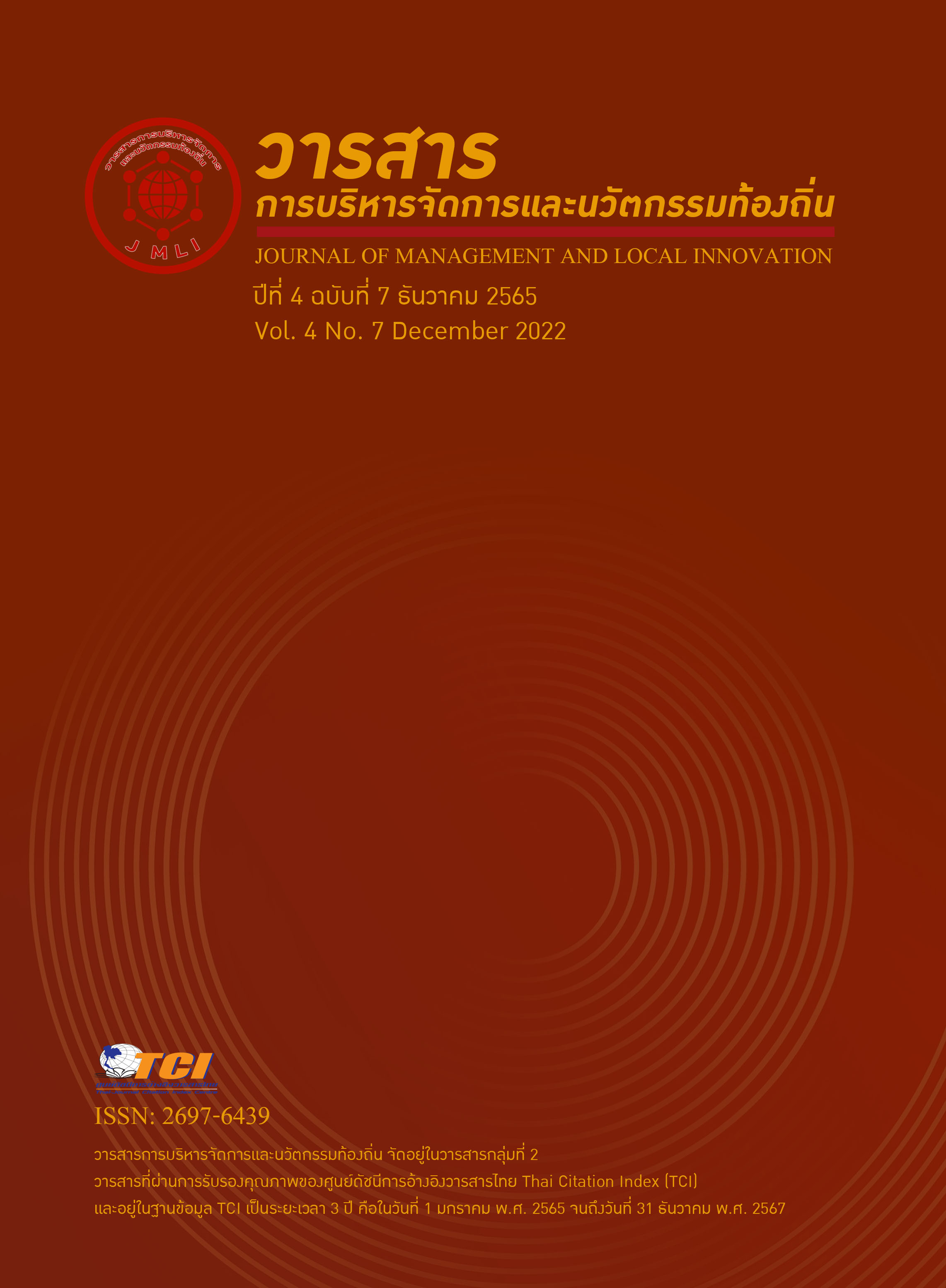Guidelines for Promoting Academic Operations of Small Educational Institutions Under Kanchanaburi Primary Educational Service Area Office District 4
Keywords:
Guidelines for promoting , academic operations of small educationalAbstract
he purpose of this study is to 1) To study the condition of small educational institutions' academic operations. 2) To study the guidelines for promoting academic operations of small educational institutions, the research method was divided into two steps is Step 1: study the academic operations of small educational institutions. The research instrument was an interview form, and the data were analyzed using content analysis. The study's findings revealed that 1. The following are the academic performance levels of small educational institutions under the Kanchanaburi Primary Educational Service Area Office 4: Extremely on all sides, with media development having the highest mean. The item with the lowest mean is educational innovation and technology. In terms of the evaluation and comparison of the transfer of academic results and teachers in academic administration as a whole, it was at the highest level when considering each aspect individually, with the item with the highest average being the development aspect. The internal quality assurance system and educational standards received the lowest marks, and media development received the lowest marks. Technological advancements in education Small educational institutions in Kanchanaburi Primary Educational Service Area Office 4 had a high level of academic performance. 2. Guidelines for promoting academic operations of small schools under the Office of Kanchanaburi Primary Educational Service Area 4 by dividing the guidelines into seven areas as follows: 1) Curriculum development for educational institutions, for example, teachers self-organized courses rather than waiting for curriculum documents from the central government or other educational institutions with different contexts. 2) Developing the learning process, for example, receiving training on new methods of organizing learning processes to receive a change in knowledge that will lead to continuous improvement of students' skills. 3) Assessment measurement and conducting the transfer of learning outcomes, for example, educational establishment administrators support and encourage teachers or committees who are responsible for measurement and evaluation regulations and the transfer of learning outcomes to receive educational area training in order to create a consistent and consistent operating guideline. 4) Research to improve the quality of education in educational institutions, such as requiring research to be used as part of the learning process and work process in accordance with educational reforms and changes in teaching and learning concepts that emphasize learners to be lifelong learners The center’s primary goal is to enable students to seek knowledge and develop their skills to the fullest extent of their abilities. 5) Media, innovation, and technology development for education, for example, the academic committee prepares a supervision calendar. Procurement performance should be monitored and evaluated. In accordance with the annual action plan, create and develop educational media and technology for teachers. and make it easier for teachers to prepare teaching materials 6) Educational supervision, such as the creation of a manual for internal school supervision. The primary goal of supervision within the school must be to develop people to develop work, to have a relationship, and to work together. The morale and morale of the work are being built to ensure the quality of education. 7) Development of internal quality assurance systems and educational standards, such as developing an understanding of the principles of external quality assessment as an assessment of the quality of educational management, monitoring, and examining educational quality and standards with the goal of developing educational quality and standards. to continuously improve.


